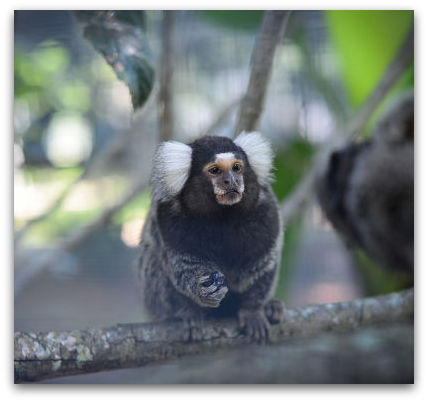|
Please be sure to join or renew your NEAVS membership
to receive our newsletter in the mail ...
Genetic differences between monkeys and humans remain more important than similarities
 |
© Jungle Friends & Jo-Anne McArthur
|
This past Sunday was Monkey Day! The occasion is timely, as after decades of harmful and wasteful efforts by scientists exploiting monkeys in human biomedical research, NEAVS has published a comprehensive study outlining why the method is genetically flawed.
“Monkey-Based Research on Human Disease: The Implications of Genetic Differences” – recently published in the scientific journal Alternatives to Laboratory Animals (ATLA) – critically assesses and refutes claims that monkeys are valuable models for human disease research and drug testing due to their high degree of genetic similarity (read the paper here).
The groundbreaking publication – written by NEAVS Science Advisor and geneticist Jarrod Bailey, PhD, presents numerous arguments and cites data from dozens of peer-reviewed studies over the past 25 years.
| “The formulaic use of monkeys in testing is not a scientifically justifiable practice,” says Dr. Bailey. “Rather, it is an acknowledgment of the problem of species differences. Researchers choose monkeys only due to their familiarity, not their usefulness.” |
The study demonstrates how minor genetic differences combine to generate vastly different characteristics, diseases, susceptibilities, and other gene expressions – making monkey use in human biomedical research ineffective and irrelevant.
Notable excerpts:
• Single-dose toxicity tests, to which many monkeys are subjected, have been scientifically discredited. For example, testing in cynomolgus macaques showed the drug TGN1412 – which almost killed six humans in a clinical trial – to be safe even at a dose 500 times greater than the human dose.
• There is no statistically credible evidence that primate toxicology data has any predictive value, either separately or in combination with other data (e.g., from dogs).
• Six thousand genes are expressed differently in the liver, kidney, and heart for humans and rhesus macaques. Many of these affect hundreds of other genes and are believed to influence disease susceptibility.
In 2011, NEAVS published a scientific review of the genetic differences between humans and chimpanzees, outlining why chimpanzees could never be a satisfactory model for any human disease. The NIH eventually responded by banning future invasive chimpanzee experiments. Now, NEAVS takes another step forward for science and animals suffering in labs by publishing this review of genetic differences between humans and monkeys.
Your generous support funds NEAVS projects such as this strategic
and impactful scientific publication. Thank you.

|
